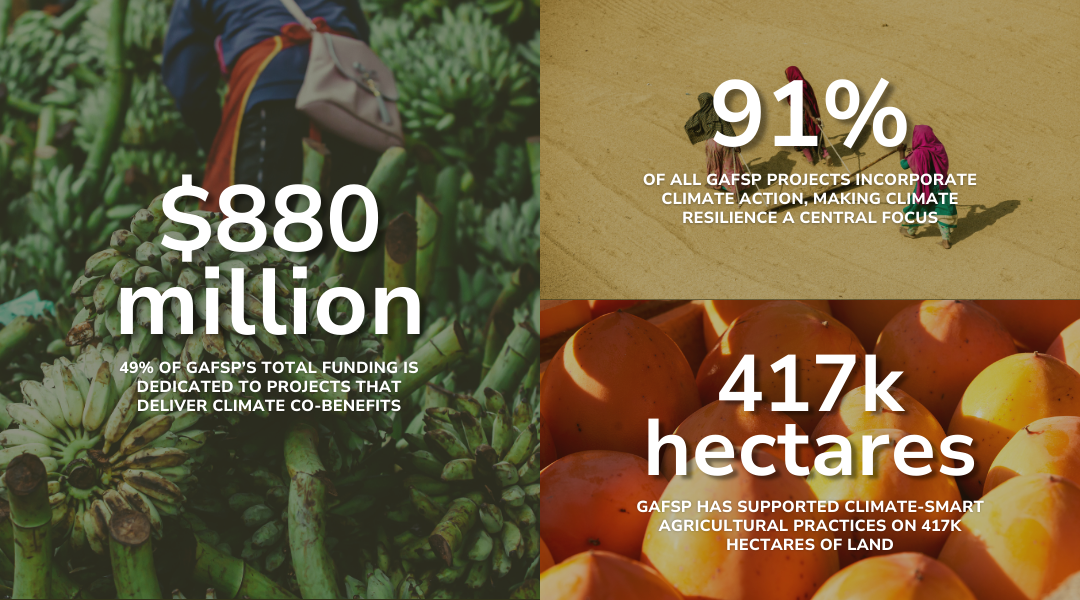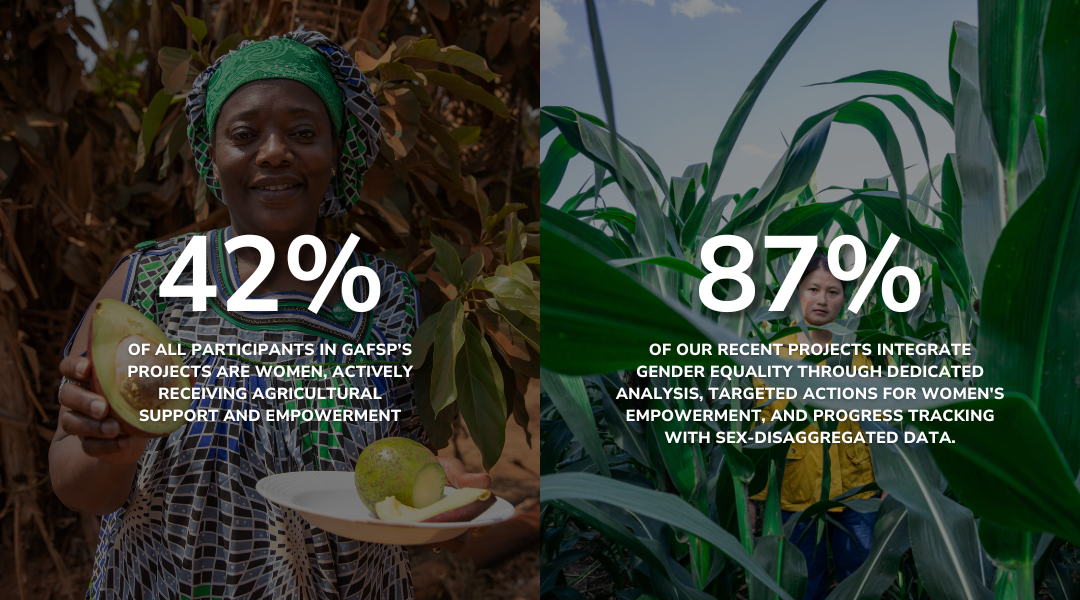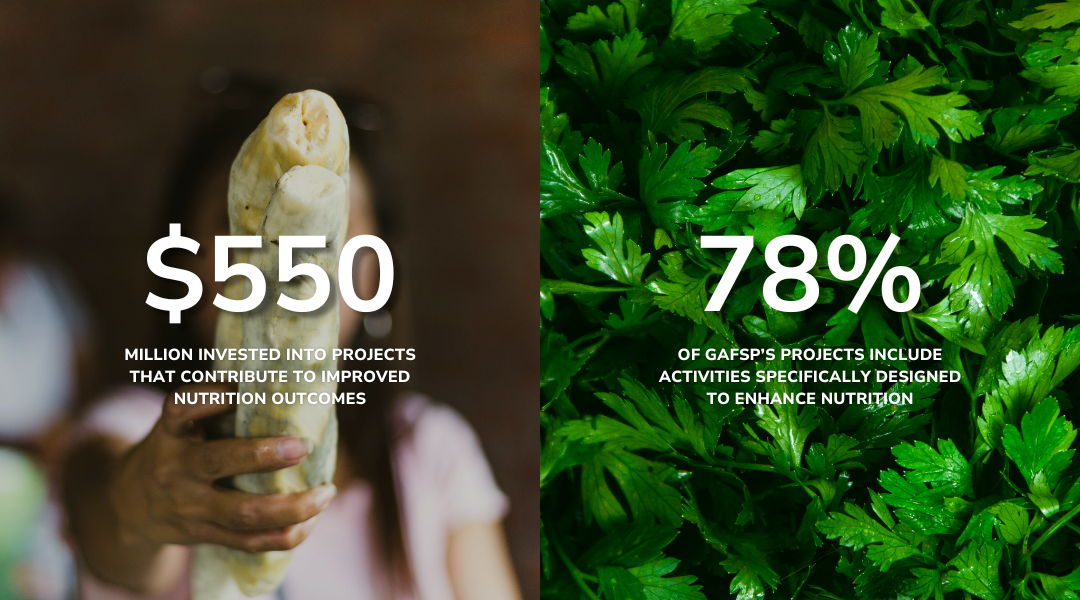Integrating Climate, Gender, and Nutrition
GAFSP tackles food security challenges by recognizing the deep connections between climate resilience, gender equality, and nutrition. Our strength lies in leveraging these links – understanding, for example, how climate-resilient crops boost nutrition or how empowering women improves climate adaptation. Our $1.8 billion public sector portfolio has integrated these themes through a holistic approach designed to harness these synergies for lasting, sustainable impact.
Building Climate Resilience
Climate change poses a significant threat to global food security, especially for vulnerable farming communities. The need for sustainable, climate-resilient agricultural systems has never been more urgent. GAFSP's publically funded projects actively support climate adaptation and mitigation strategies to strengthen agricultural systems, ensuring that farmers can thrive in an increasingly unpredictable climate.

Empowering Women in Food Systems
Gender equality is essential to improving agricultural productivity, enhancing livelihoods, and achieving global food security. At GAFSP, we are dedicated to ensuring that women play a central role in agricultural development. By empowering women in food systems, we’re not just supporting families, but uplifting entire communities and economies.

Improving Nutrition Through Agriculture
Malnutrition is one of the most pervasive issues undermining global development and well-being. GAFSP's publically funded projects improve access to diverse, nutritious foods, supporting better health outcomes and fostering sustainable nutrition for communities around the world.
